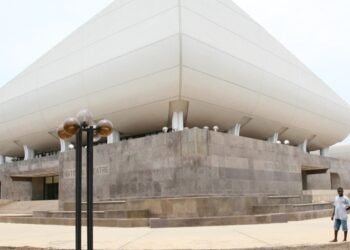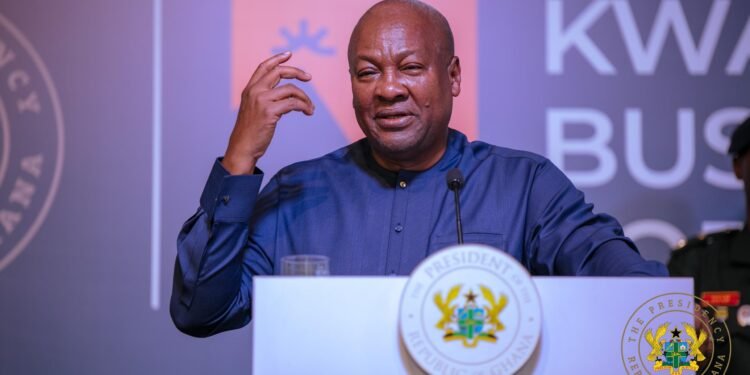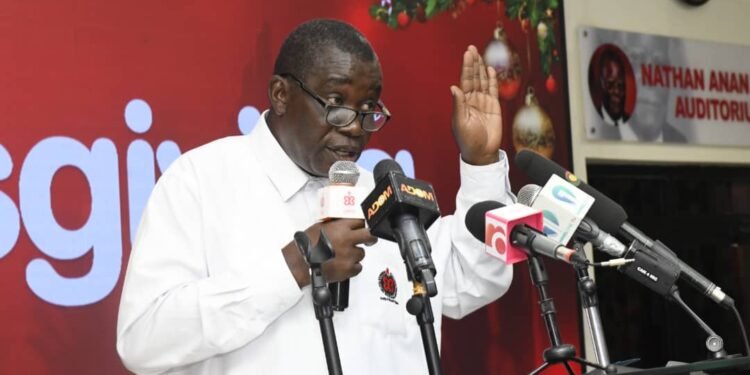Walk through any creative neighborhood in Accra, Kumasi, or Takoradi and one will find striking evidence of Ghana’s cultural vitality: muralists and jewelers working in cramped studios, young filmmakers editing late into the night, musicians rehearsing in rented halls.
Yet behind the energy are everyday realities: late payments, intermittent gigs, DIY marketing, borrowed equipment, and the constant search for the next payment that will pay the rent. For too many, creativity is a stopgap rather than a sustainable profession.
Popular Ghanaian MC and hypeman, Kojo Manuel, has called on authorities and stakeholders to do more to uplift the creative arts sector, not just for artists but also for the other creatives behind them.
Kojo Manuel said the creative space currently lacks the structure necessary for sustainable growth, adding that most creatives are struggling to make ends meet.
“I feel like the authorities, when it comes to the creative space, are not doing enough to help it. There needs to be talent management, as well as various entities that are supposed to guide creatives and help them progress. Now, most creatives are moving from hand-to-mouth. Meanwhile, aside from the artists, the DJ, MCs, dancers, etc, are necessary for the creative space. But people do not value them.”
Kojo Manuel
He stressed that formal talent management structures and targeted funding or grants could empower DJs, MCs, and dancers.
“If we have a lot of these agencies and government-sanctioned checks to pump into the industry, creatives will make more money and will be able to afford certain benefits, like a management team, to help them move. So, if certain things are put in place, it will go a long way to grow the creative arts industry.”
Kojo Manuel

Kojo Manuel argued that with stronger structures, such as mentorship programs, grants, and talent development agencies, creatives could be better supported to do more than just survive.
Domestic markets for creative goods and services are often informal and fragmented. Many artistic outputs are sold person-to-person, at small events or markets, limiting scale and income predictability.
Copyright and related rights are unevenly enforced: piracy, unlicensed broadcasting, and poor royalty collection reduce creators’ ability to earn recurring income from their work.
Public funding for arts and culture is small relative to the sector’s potential. There are a few stable grants, subsidies, or guaranteed procurement streams (e.g., content quotas for public broadcasters or cultural procurement by ministries).
However, creative industries generate jobs, tourism, export revenue, and ancillary services (tech, hospitality, retail). When creatives are underpaid and undercapitalized, the country forgoes economic growth.
Also, talented people either leave for more remunerative markets abroad or abandon the arts for more predictable incomes.
Ghanaian artists and musicians have achieved global recognition and commercial success, and digital platforms have opened routes to international audiences.
These successes prove the potential but are not yet systemically replicable. The key is turning isolated successes into scalable ecosystems.
A Call To Action

Creativity is not a disposable hobby: it is a driver of identity, innovation, and economic dynamism. The hand-to-mouth reality facing many Ghanaian creatives is a policy and market failure, not a measure of artistic worth.
With targeted reforms — strengthening rights, building markets, improving finance and skills, and aligning public and private incentives — Ghana transforms creative work from precarious subsistence into dignified, sustainable livelihoods.
Doing so will not only honor the artists who make Ghana’s culture vibrant but also unlock new jobs, exports, and civic energy for the whole country. The question is not whether Ghana has talent — it undoubtedly does — but whether Ghana will choose to invest in the systems that let talent thrive.
READ ALSO: NDC Risks Betrayal if ORAL Fails – Kay Cudjoe Warns























